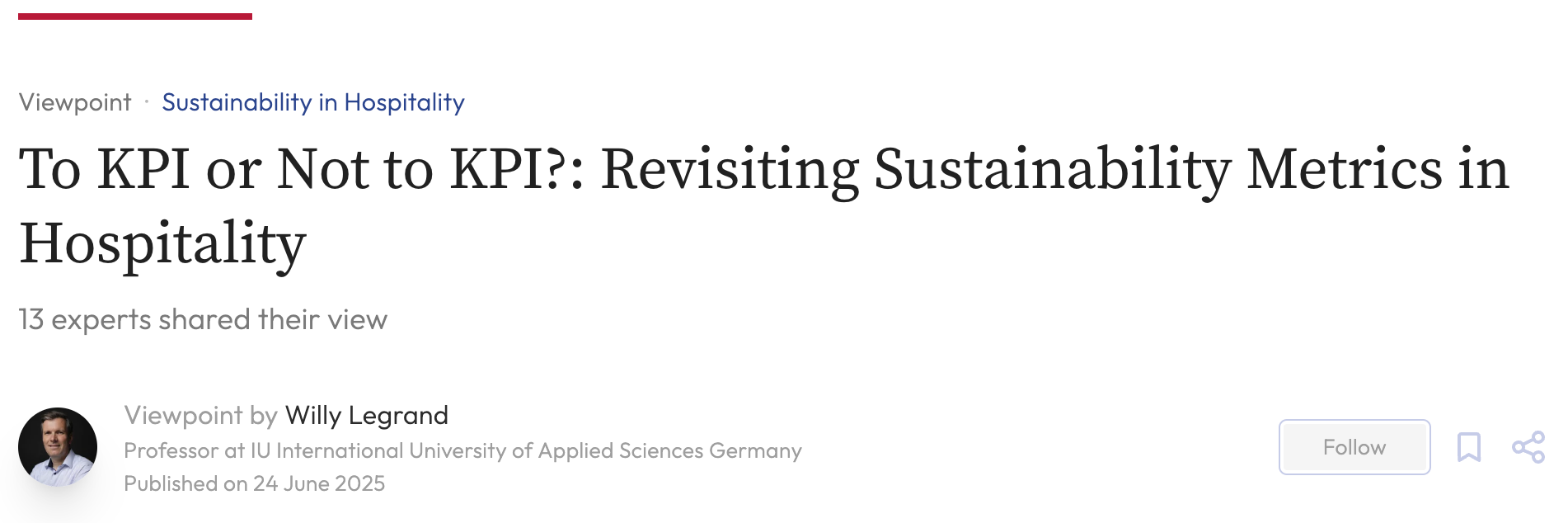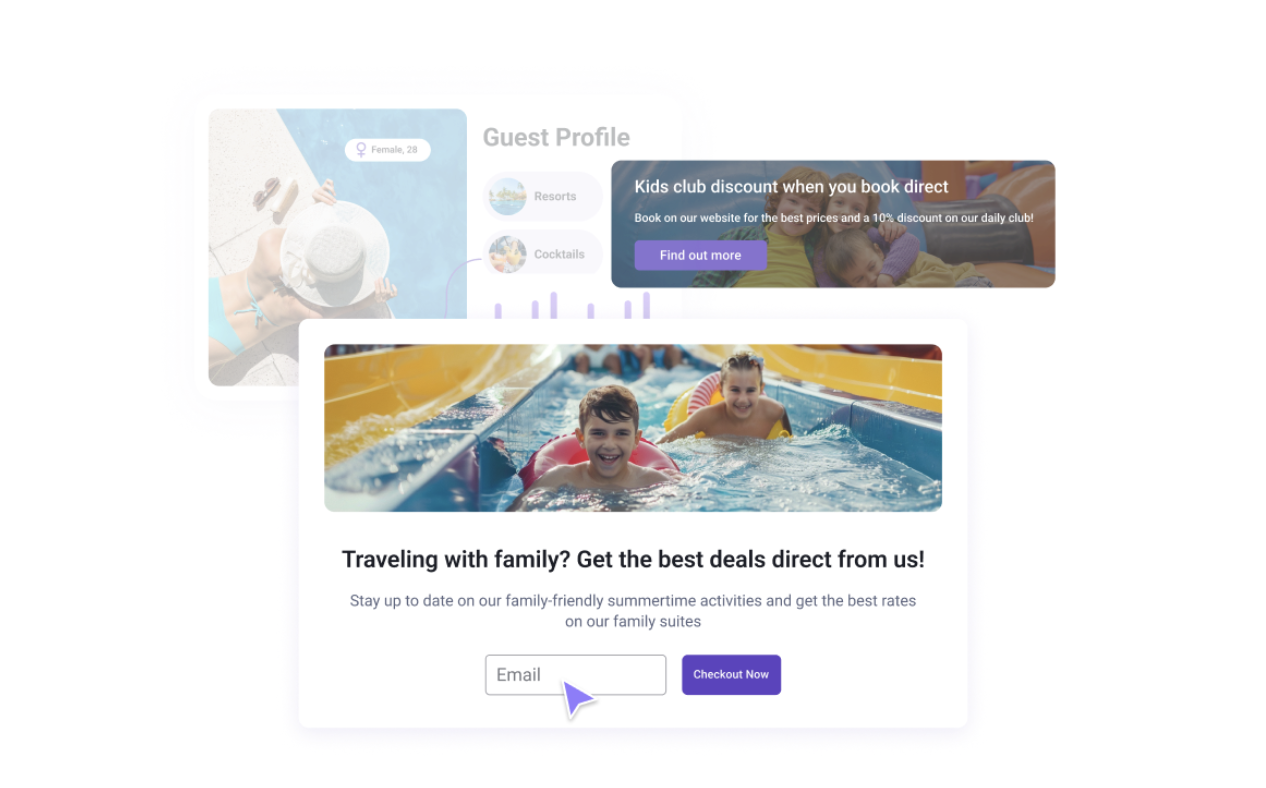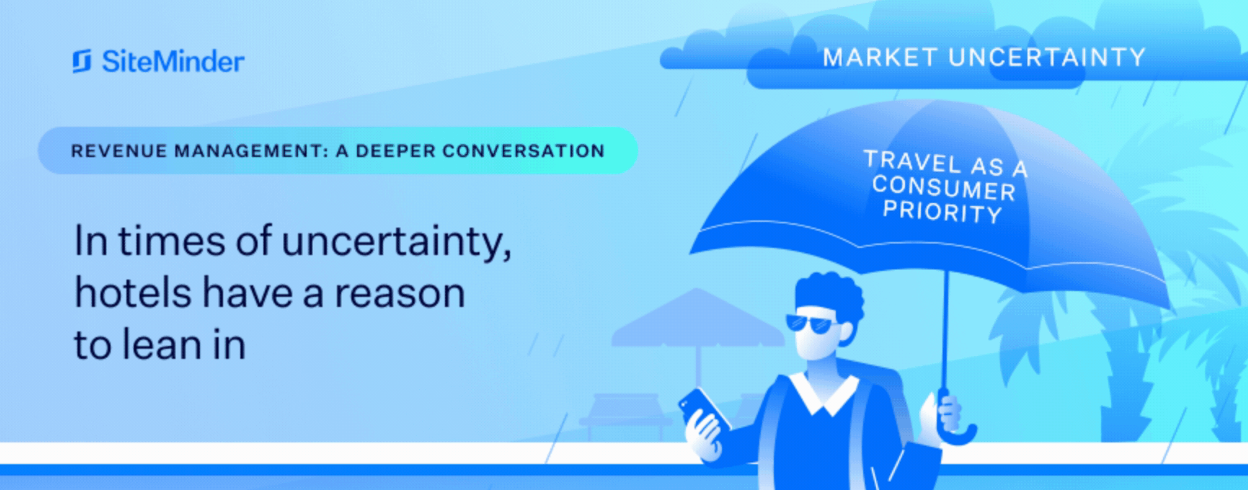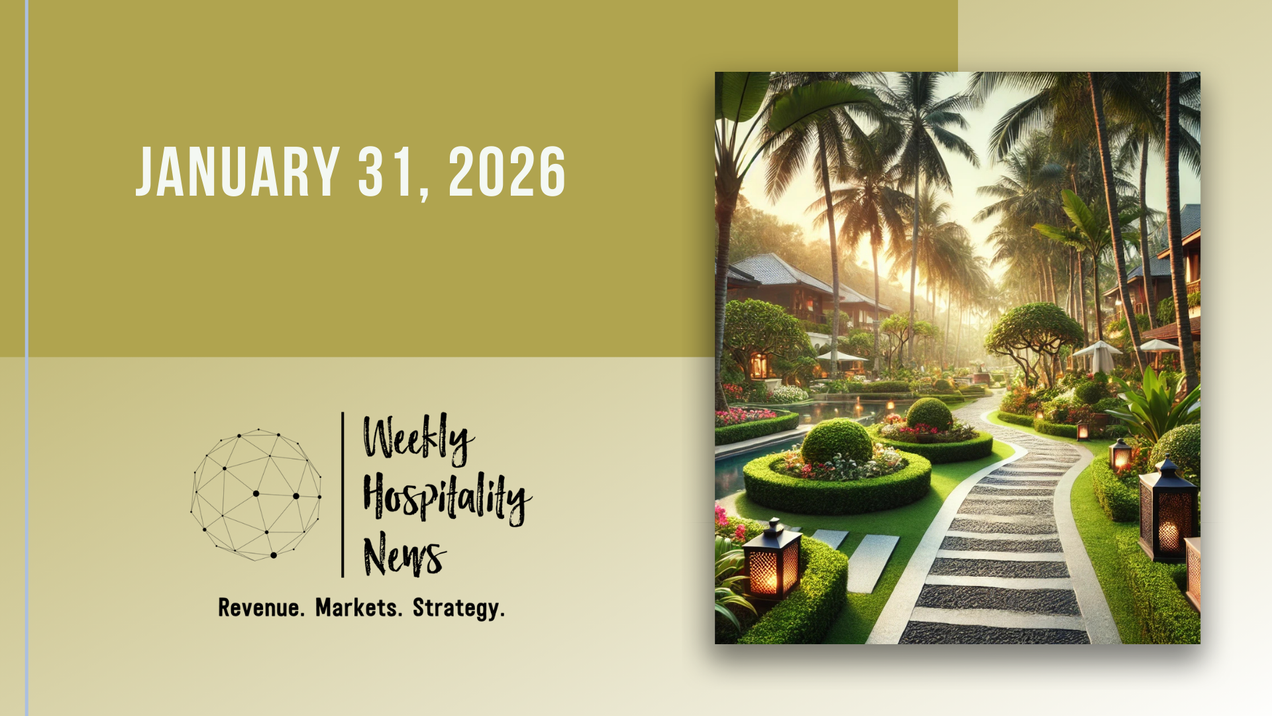
Weekly Insights. June 28, 2025
Best hospitality industry articles focused on 💵revenue, 📊markets, and 🎯strategy (Jun 22 - Jun 28, 2025).
To KPI or Not to KPI?: Revisiting sustainability metrics in hospitality
Viewpoint features insights from an expert panel debating the limitations of traditional KPIs in truly reflecting a hotel's sustainability impact. Contributors highlight how common metrics like energy reduction or waste diversion can create misleading narratives, potentially masking systemic issues. They advocate for shifting measurement approaches toward deeper impact metrics—such as ecosystem health, circular resource flows, and community well‑being—to ensure that sustainability efforts lead to real, positive change.

How food well-being is changing hospitality: 6 key trends explained
The article explains how the focus on food and well-being is transforming the hospitality industry. It highlights six major trends, including ethical sourcing, personalized nutrition, vitality-driven menus, and community-based dining. The article emphasizes that food today is more than just sustenance; it connects culture, health, and sustainability. Hotels are encouraged to offer meaningful, health-conscious dining experiences that reflect these evolving guest expectations.

Booking backwards? The real impact of reverse yielding in revenue management
Reverse yielding occurs when hotels set high room rates far in advance only to significantly lower them as the stay date approaches. This is typically a symptom of deeper issues like poor forecasting, lack of trust in pricing tools, internal misalignment, or reactive pricing driven by competition or hype. Effective solutions include empowering revenue leaders with decision-making authority, aligning departments, trusting or improving RMS systems, and basing pricing on data rather than assumptions. A proactive, data-driven approach prevents rate volatility and ensures revenue management leads the market instead of chasing it.

Triptease Messages: A new era of hotel website personalization
Triptease introduces an upgraded platform that enables hotels to deliver highly personalized website experiences through dynamic, multi-step messaging campaigns. Article highlights new features including full creative control with drag-and-drop design, mobile-optimized layouts, rich media support, intelligent audience targeting, cross-channel campaign integration, and unified performance reporting—all aimed at boosting direct bookings and guest engagement.

10 types of tourists you could attract to your hotel
The eHotelier article outlines ten different types of tourists that hotels can attract, including adventure seekers, wellness travelers, slow travelers, digital nomads, families, eco conscious guests, and solo explorers. It emphasizes the value of tailoring hotel experiences and marketing strategies to match the specific interests and needs of each group. By focusing on these segments, hotels can create more engaging guest experiences, increase direct bookings, and build stronger loyalty.

In times of uncertainty, hotels have a reason to lean in
Article explores how hotels can respond to uncertainty caused by tariffs, geopolitical changes, and economic challenges by adapting to evolving traveler preferences and the rise of the experience economy. Rather than lowering room rates, hotels are encouraged to offer added value and flexible loyalty rewards that appeal to domestic travelers seeking meaningful and local experiences. The article also highlights the importance of strengthening revenue strategies through cost management, teamwork across departments, and data-informed decisions to build resilience and capture future demand.

Hotel guest experience: The role of tech in modern hospitality
The article explores how hotel guest experience is shaped by both human interaction and technology. It defines guest experience as the overall impression created by every touchpoint, including communication, room comfort, cleanliness, staff service, and perceived value. While contactless tools and AI chatbots can enhance efficiency and reduce wait times, the article emphasizes that genuine warmth and personal service are what guests remember most, especially in leisure contexts . It also highlights that guest expectations vary by traveler type and property type, suggesting that hotels tailor their tech and service mix to match specific audience needs. In essence, the article advocates for a balanced approach that places human care at the forefront while using technology to support seamless, convenient interactions.

Follow on LinkedIn




